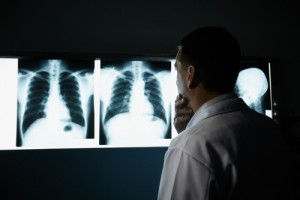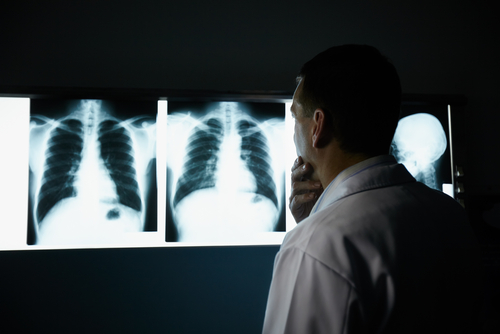 Memorial Hermann Katy Hospital recently launched a new Lung Cancer Screening Program meant to help patients who are at high risk for lung cancer detect lung nodules and potential lung cancer at an early stage. The purpose is to identify and treat these cases when they are still curable.
Memorial Hermann Katy Hospital recently launched a new Lung Cancer Screening Program meant to help patients who are at high risk for lung cancer detect lung nodules and potential lung cancer at an early stage. The purpose is to identify and treat these cases when they are still curable.
The new screening program will focus on current or former smokers who are 55 years old or older and who have smoked at least one pack of cigarettes a day, since up to 90 percent of all lung cancers are a result of smoking. Non-smokers who were exposed to secondhand smoke, asbestos, radon, or ionizing radiation, or who have lung scarring from chronic infections are also at risk for the disease.
“The new screening test for lung cancer has shown to be useful in the early detection of lung cancer, leading to a decrease of deaths,” noted Terence O’Connor, M.D., medical director of radiology at Memorial Hermann Katy Hospital, as quoted in a recent press release. The early detection of the disease is one of the main focuses of the medical community.
Lung cancer symptoms are hard to identify early, which is what makes the disease almost undetectable at early stages. Persistent coughing, coughing up blood, wheezing, shortness of breath, recurrent pneumonia, chest pain, hoarseness, weight loss, and bloody, rust-colored sputum or mucus are some of the early signs. However, the disease is usually discovered only when it has already spread to other tissues or organs.
The U.S. Preventive Services Task Force recently recommended the approval of low-dose computed tomography (CT) lung screening, a detailed imaging test for the lungs, for high risk patients. The research on lung cancer, as well as diagnosis and treatment techniques have all seen major advances lately.
Researchers from the Davidoff Cancer Center in Israel recently created a new type of breathalyzer, a device that is able to detect lung cancer and evaluate its severity from a single breath into a tube. The analyzer, which identifies the disease accurately in four out of five cases, was presented at the American Society of Clinical Oncology (ASCO) meeting in Chicago last month.
At the University of Manchester, scientists have also made recent key discoveries for lung cancer treatment, which may be the first steps to the development of a next-generation personalized medication for the disease. Researchers from the Cancer Research UK’s Manchester Institute were able to monitor and determine the patient’s body response to drugs through a blood sample, using the potential of pinpointing circulating tumor cells (CTC), which are cells that loosen up from the tumor and circulate through the blood.

